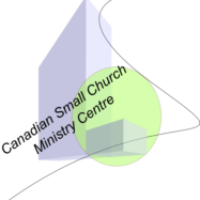“I grew up in a small town that had, I think, five elevators when I was a kid. In fact, I remember them building a big new elevator when I was probably five or six years old. I came to faith in Christ in my early 20s. And then I hit it off to Bible College, . . . I graduated in 1988, went back and pastored my home church for five years in Rosetown. Saskatchewan. . . . Then we went up to Tisdale in 1993, and planted a church there. We were there for 10 years, and then moved into the big city of Saskatoon and we were there for 10 years. In 2013, I accepted a role here in the district office of the Christian and Missionary Alliance in the Midwest District, which is essentially Saskatchewan, Manitoba, little bit of Ontario and then of the Nunavut territory. So quite a broad geographic range with not very many people.”
[Rural Church Pastors Network] “I think it was a really, really positive initiative that was started in Alberta, and drifted over into Saskatchewan as well. I think we had at one point, we had four hubs here in Saskatchewan. It was a great vehicle for people to connect from small churches. I think one of the things that that a lot of pastors in small communities struggle with is – Who do we connect that knows the kind of the things that we’re going through. One of the huge upsides of the Rural Church Pastors Network was just that coming together with a significant number of pastors from your local area, that face the same challenges and struggled with the same struggles and had the same victories.”
“I think COVID, as you implied, has just made things a lot more challenging all across the board, big or small, it doesn’t matter. One of our small church pastors came up with the thought, . . . ‘I don’t think COVID caused anything. I think COVID put a magnifying glass on everything.’ And so if you were facing challenges, COVID just intensified that. If things were going great. It intensified that.”
“I think one of the other great stresses for a lot of pastors, and if you’ve got a pastor’s heart you understand, the inability to connect with people. . . . Pastors have been very limited in how they can connect with with people. And I think that’s really caused a lot of stress for many of our pastors, many of our small church pastors, these are people they love. These are people that they’ve been engaged with in a very, very significant way for many of them for a lot of years. And so to have that pullback makes it difficult.”
“I really think that the churches are going to have to say, look, we need to step in even more now and support our pastor through these next six or eight months, until he can get back into a regular rhythm. Because the rhythm is not going to be the way it was.”
“I think next immediate steps for pastors, I think is that the Board needs to say, okay, Pastor, how are you doing? We’re not going to give you a sabbatical because we can’t give you a sabbatical. But you know what? You just finished up your vacation or whatever it might have been. Once things get rolling in the fall, why don’t you take your wife and, and d just take two weeks and unplug from the church, we’ll run things for a couple of weeks, you come back, and we’ll dive into it together.”
“I think we need itinerant disciple makers who will go into some of these small communities an reengage the people into ministry. And I think that’s a pattern that I believe the small church can pilot, model and present to the larger church. . . I would envision that a lot of these small groups are going on. And then once a month or something, they drive into the big city of Kindersley, and go to a worship service. But throughout the rest of the month, they’re actually worshiping together in a small group and being challenged to grow in their faith and their maturity.”

